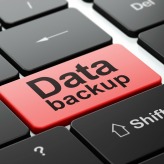 Any business owner worth their salt knows the value of data to business. This is why it’s bizarre that many business owners don’t have a proper data backup strategy in place. Organizations of all sizes need to take a proactive approach to backing up their data, and there are several solutions they can implement to do that. Here are four to consider.
Any business owner worth their salt knows the value of data to business. This is why it’s bizarre that many business owners don’t have a proper data backup strategy in place. Organizations of all sizes need to take a proactive approach to backing up their data, and there are several solutions they can implement to do that. Here are four to consider.
When it comes to data backups, there’s no one-size-fits-all solution. As such, you’ll want to consider the pros and cons of each before making a choice.
USB flash drives
USB flash drives are basically miniature hard drives that you connect to your computer using a USB port. Aside from being inexpensive, USB flash drives are also portable. They can be used to back up data from several computers.
However, because of their size and portability, USB flash drives are easy to misplace, which is why they’re not recommended for long-term storage of crucial information. They are best used for intermediate backups.
External hard drives
As a backup storage medium, external hard drives have the lowest cost per gigabyte compared to other backup devices. Since an external hard drive has the same plug-and-play functionality as USB flash drives, you can just plug it into your computer and start selecting the files you want to back up. The transfer rate is also very fast, and you can back up a large amount of data within seconds.
One of the drawbacks of using an external hard drive is that you’ll need to update your backups on a regular basis, or else new files won’t be included. There’s also the risk of the device being misused or stolen. For example, an employee might use the drive for storing personal files or take it with them when they quit.
Network attached storage (NAS)
NAS is a dedicated server for storing data, and it can also be used as an email server. It has its own IP address and can operate either wired or wirelessly. NAS offers data redundancy, which means it will generate a backup of your backups, so you can ensure your files are fully protected.
On the downside, NAS can’t be scaled beyond the limits of the system. This means you have to purchase additional hard drive bays when you need more capacity. You also have to take full responsibility for data security if you’re implementing NAS.
Cloud storage
Cloud storage is becoming more and more popular among businesses of all sizes because of its many benefits. It gives users anytime, anywhere access to data and lets them work with the most current hardware and up-to-date software. It’s also affordable since businesses pay for what they use only. Additionally, cloud computing is convenient, because service providers take care of the installation, management, and maintenance processes.
However, some cloud service providers don’t employ sufficient security measures on their systems, so your data could be exposed to potential cybersecurity threats. For this reason, cloud storage is not always the ideal solution for medical practices, law firms, and other organizations that handle sensitive data. If they want to use cloud storage, they must find a service provider that implements top-of-the-line cybersecurity protocols and specializes in data regulations compliance.
Choosing the best backup solution has far-reaching impacts on your business. Each method or device has trade-offs, which is why you need to select the one best suited to your business’s needs. Enlist the help of our experts to ensure you make the right choice.

